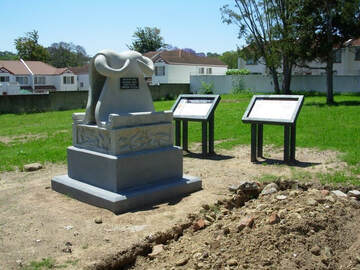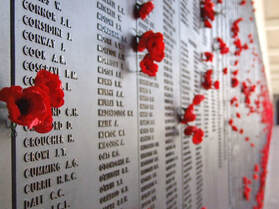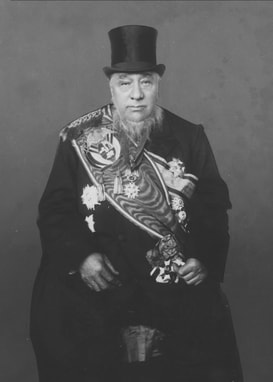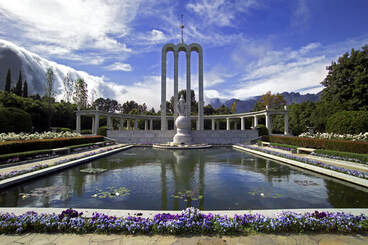 To view this article as a video, click here. To listen to this message as an audio, click here. To view this presentation as a PowerPoint, click here. With Christians under fire throughout North Africa and the Middle East, we need to remember the persecuted and learn from their steadfastness amidst suffering. 25th July, marks the anniversary of a dreadful atrocity in Cape Town, a terrorist attack on St. James Church of England, which left 11 people dead and over 50 wounded. Sanctuary Desecrated At about 7:30pm, on Sunday, 25th July 1993, while the congregation of 1,400 listened to a hymn of worship, a group of APLA terrorists burst into the church and opened fire with automatic weapons. Eye Witness Accounts "I noticed the handle of the side door facing the congregation turn and then the doors were kicked open. A black man wearing some kind of overall was standing in the doorway. He was carrying an assault rifle. As he stepped forward he raised the rifle, cocked it and fired it on full automatic directly into the congregation." Another eye-witness described it this way: "I saw this man kick open the door next to the stage and holding his rifle from the hip he opened up on us spraying bullets across a wide arc into the packed congregation. But before he even opened fire, two other black men who seemed to be wearing some olive green uniforms lobbed two hand grenades into the centre of the church." "There was this trail of smoke from the grenades and a few puffs of smoke from the first shots fired. The grenades were still in the air when he started firing." "As I dived under the pew for cover, I heard two grenades explode. I looked up and saw pews sticking up into the air. The firing went on for a while and then suddenly everything was quiet."
0 Comments

To listen to a Lecture on this article, click here
To watch a video on this article, click here "There is a way that seems right to a man, but its end is the way of death." Proverbs 14:12 Economic Suicide The “cattle killing” national suicide of the Xhosa in 1856 in Transkei, now the Eastern Cape of South Africa, was one of history's strangest socio-economic disasters. Within twelve months the population of Xhosaland plummeted by 80%, mostly through starvation. This bizarre episode was initiated by the niece of a witchdoctor. Through mass hysteria the Xhosa convinced themselves of the need to kill all their cattle, destroy all their food and sow no crops for the future. It was economic suicide and it led to mass starvation.  Remembrance Day Throughout the English speaking world, the 11th November is observed as a Remembrance Day to solemnly recall the end of hostilities of World War One at the 11th hour of the 11th day of the 11th month of 1918. In time, it has come to be observed as a Memorial Day for all who died in both World Wars and in other subsequent conflicts. 
To view a video on this article, click here.
To view a PowerPoint on this article, click here. To listen to an audio of this article, click here. To listen to the radio on this article, click here. 10 October used to be celebrated as Kruger’s Day, a public holiday in South Africa, which marked the birth of this great founding father of our nation. Oom Paul was born on his grandfather's farm at Bulhoek, 10 October 1825. Paul's parents were Casper Kruger and Elsie Steyn. Drought, locusts and migrating herds of buck forced them to lead a nomadic existence in the Karoo. He was hardened by nature and schooled by the Bible. He received only three months of formal education, mostly being home schooled. He read the Bible daily. Voortrekker His father, Casper Kruger, joined the Trek party of Hendrik Potgieter in one of the very first of the expeditions, 1835. As a young boy of 10-years-old, Paul Kruger set out on the Great Trek under Hendrik Potgieter. 
To see this article as a PowerPoint on Slideshare. Click here.
To see this article as a video on Vimeo, click here. To listen to the audio on Sermon Audio, click here. The Huguenots have left us a tremendous legacy of heroic faith, Christian endurance and sacrifice. Their contributions to our culture, spiritual life and prosperity have been out of all proportion to their small numbers. Afrikaans Ancestors There are many Huguenot surnames amongst us to this day: Blignaut, De Klerk, De Villiers, Du Preez, Du Toit, Fourie, Hugo, Joubert, Le Roux, Malan, Nel, Pienaar, Retief, Rossouw, Theron, Viljoen, Visagie, and many others. The first Huguenot to arrive at the Cape, on 6 April 1652, was Maria de la Quellerie, the wife of the first governor of the Cape, Jan Van Riebeeck. Maria's grandfather had been a French Huguenot pastor. Dynamic Christian Movement The Huguenots were Protestants, members of the Reformed Church of France. Their forerunners were the Waldensians, a dynamic Bible study movement which arose in the 12th century, led by Peter Waldo, a merchant of Lyons. The Waldensians desired to study the Scriptures and be faithful to Biblical principles in all areas of life. These poor men of Lyons went out in twos and boldly proclaimed the Word of God throughout Southern France, Northern Italy and Switzerland. |
Categories
All
Archives
October 2022
|
 RSS Feed
RSS Feed